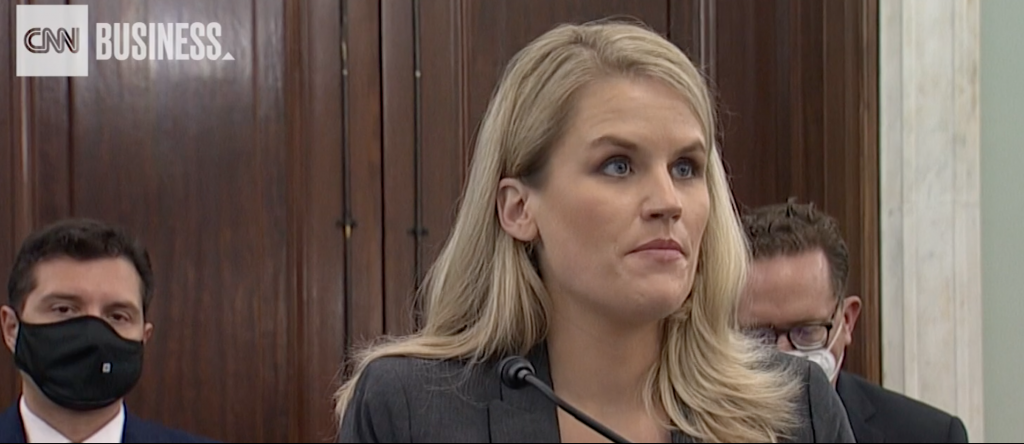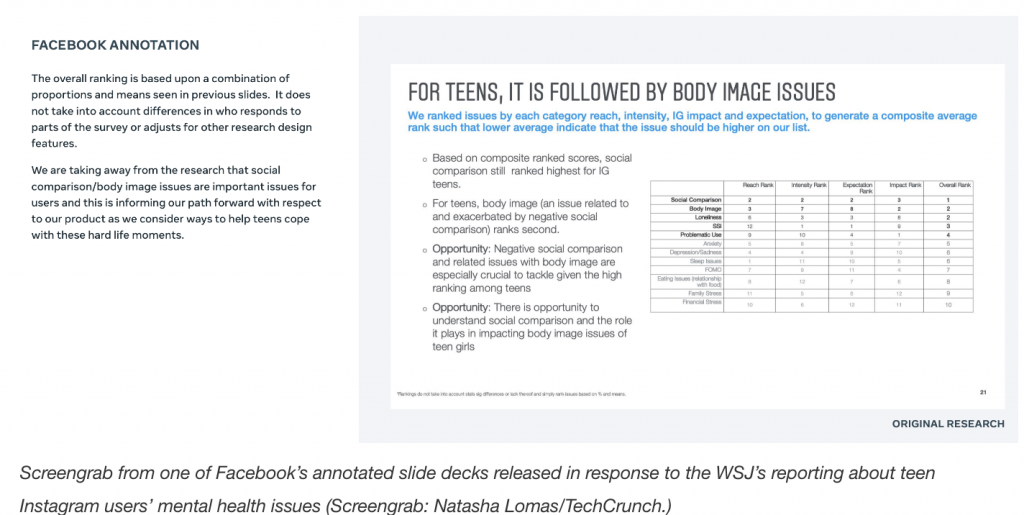
Frances Haugen, a former Facebook employee, testified before Congress on the lack of safeguards for children on the company’s platforms, in addition to calling it “divisive” and “a threat to our democracy.” (Source: CNN Business)
Facebook Faces Heat in Congress over Hidden Report Data, Impact on Children
October 4, 2021 will certainly go down as a day of infamy for the Facebook family of workers and sister companies. As the social media giant’s platform was taking an unplanned vacation from its billions of users, a whistleblower was getting ready to tell Congress what she managed to sneak out of Facebook’s own data—and it’s not very flattering for those involved.
If you are not a FB user, then you might have missed the blackout it went through for over 5 hours on Monday. And much of that blackout remains unexplained.
Writer Natasha Lomas has a piece in techcrunch.com that exposes another bit of Facebook trickery being used to soften the look that regulating agencies are taking at the way Facebook harms children. In particular, the teenage girls of Instagram which Facebook also owns.
So here are the issues barking at Mark Zuckerburg’s back door and what the company is using to shield itself.
Facebook has quietly published internal research that was earlier obtained by The Wall Street Journal — and reported as evidence the tech giant knew about Instagram’s toxic impact on teenaged girls’ mental health.
The two slide decks can be found here and here. The tech giant also said it provided the material to Congress earlier today. And since the whistleblower was scheduled to face a Congressional hearing on Tuesday, October 5th, the timing for this research release seems obvious as a tactic to deflect from the issues.
However, Facebook hasn’t simply released the slides — it has added its own running commentary which seeks to downplay the significance of the internal research following days of press commentary couching the Instagram teen girls’ mental health revelations as Facebook’s “Big Tobacco” moment.
In its presentation to Congress, the PR team at Facebook published these slides on Sunday with some slight changes and various annotations to lessen the burden that Facebook was well aware it was creating in teenage girls that follow its platforms.
“The methodology is not fit to provide statistical estimates for the correlation between Instagram and mental health or to evaluate causal claims between social media and health/well-being,” Facebook writes in an introduction annotation on one of the slide decks. Aka “nothing to see here”.
And even while lawmakers are taking a harder look at social media platforms and the protection they are afforded under Section 230, Facebook was considering releasing a specially designed platform for children under the age of 13. But all the recent hubbub in the media seems to have put that project on hold for now.
Insider Tells Much, but Not All on Facebook
Frances Haugen is the whistleblower testifying before Congress on Tuesday and the information she turned over to investigators is simply explosive on many levels. The former Facebook product manager for civic misinformation told lawmakers that Facebook consistently puts its own profits over users’ health and safety, which is largely a result of its algorithms’ design that steers users toward high-engagement posts that in some cases can be more harmful.
Though she stopped short of accusing top executives of intentionally creating harmful products, she said that ultimately, CEO Mark Zuckerberg had to be responsible for the impact of his business.
Of course, all of this drama boils down to one thing. Money. The size of Facebook and the money it generates not only fuel its drive, but it protects the company from having to face repercussions for its content. At least for now. Stay tuned as Lomas’s article points out, the limits for Facebook’s invincibility may have been reached.

read more at techcrunch.com







Leave A Comment